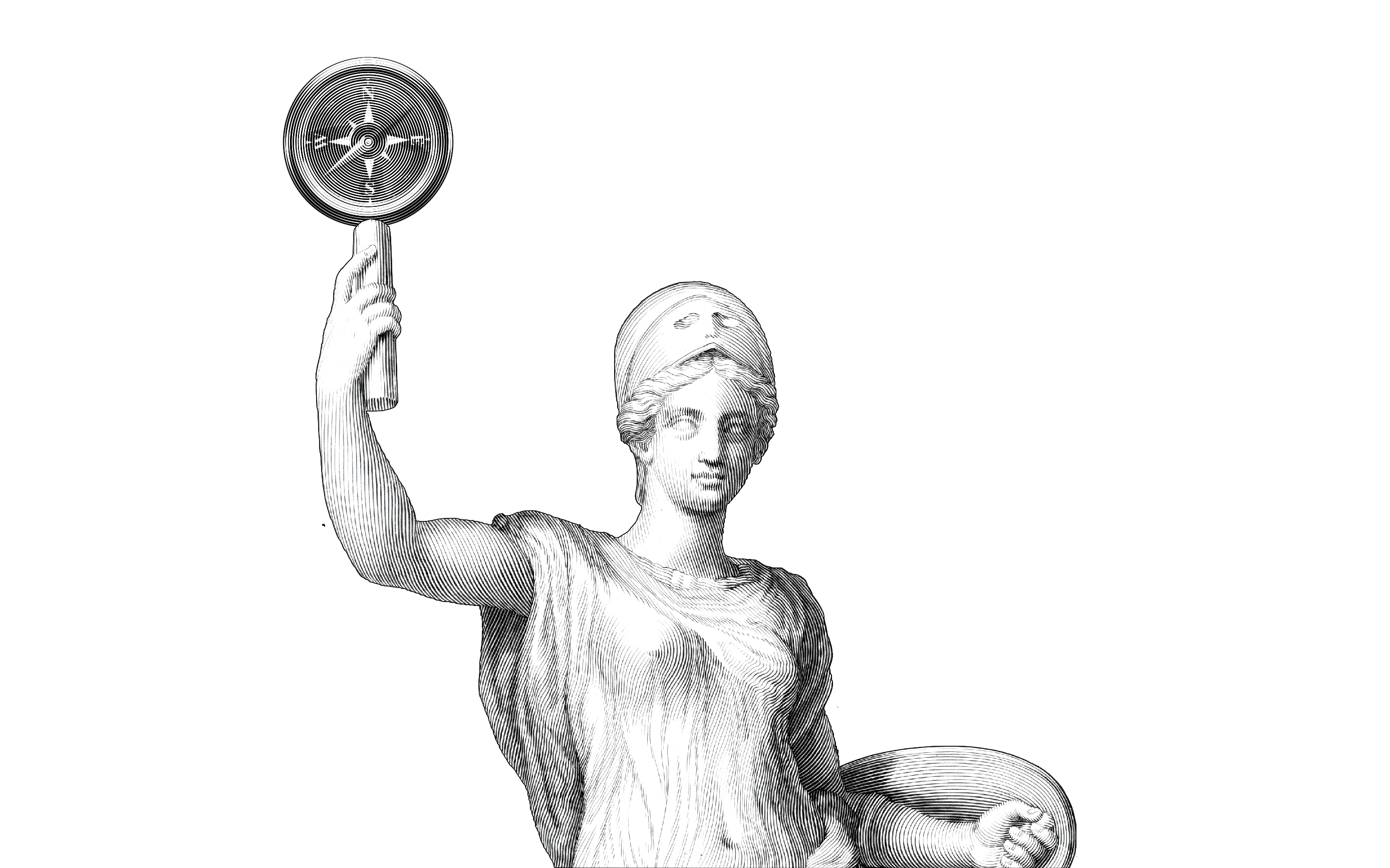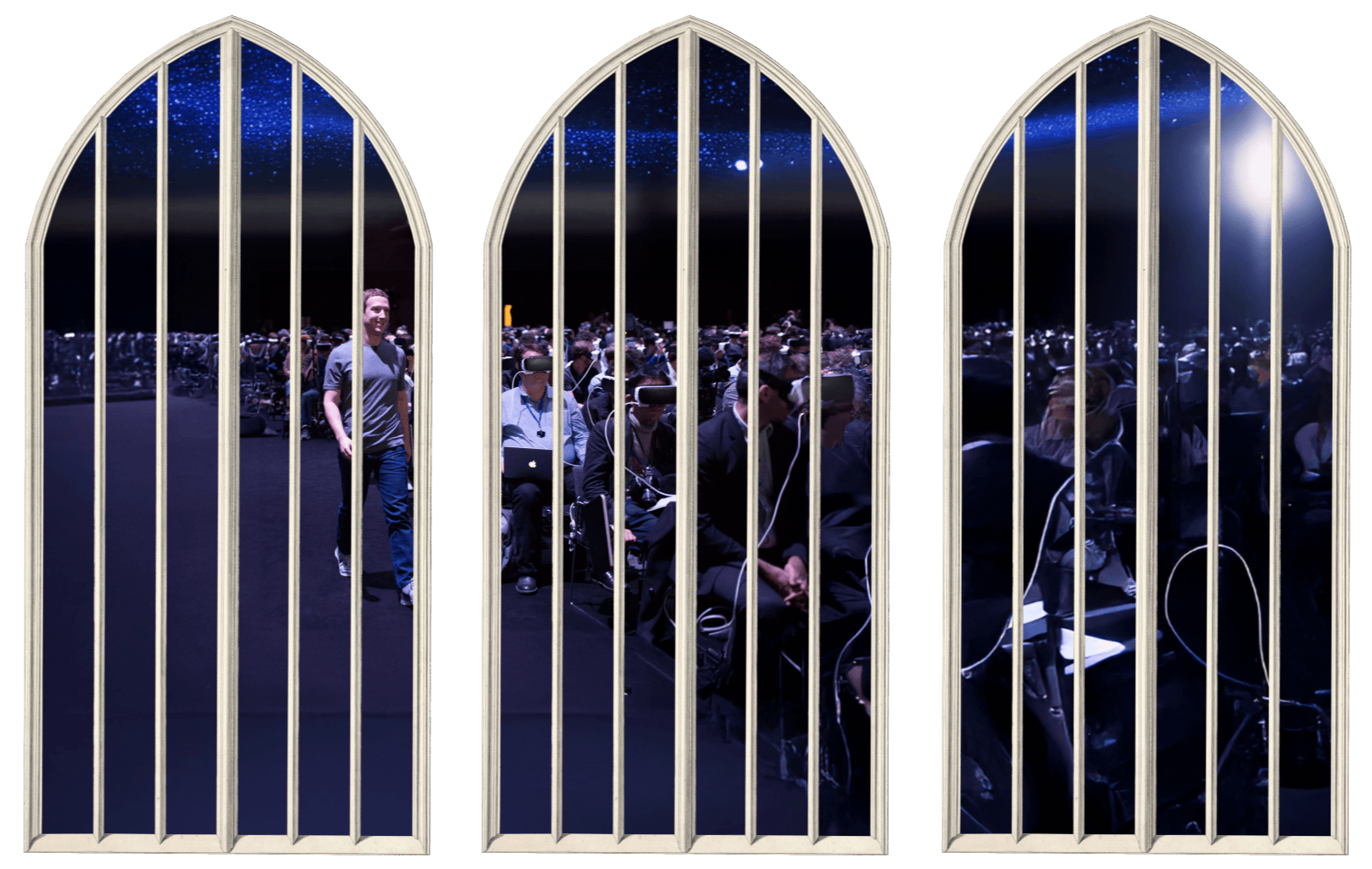When people ask me about my background, they’re confused. I studied philosophy. How come I do web design? In short: The old Greeks brought me here. What can Internet workers learn from the old Greeks?
Schole: Spare Time, Leisure, Rest, Ease
Plato studied 20(!) years with Socrates before he started his own thing. Aristotle studied 20(!) years with Plato before he became his own master.
Studying hard for 20 years straight should bear some very sweet fruits. As long as studying involves fun, discourse, and a free spirit, like it did back then. The root of the English word “school” is schole, which means, leisure, free time, fun, ease. This original sense has almost nothing in common with school like I experienced it. My school was more like a military camp.
But the Greeks taught me that learning is fun, knowledge frees you from fear, culture makes the world more interesting. And you learn most when you are teaching. The Internet is an amazing learning tool. It is Greek in its concept.
Logos: Language opens your mind
Logos is the word or that by which the inward thought is expressed, and the inward thought itself:
- That which is said or spoken
- Thought, reason, an opinion, freedom of speech
- The Word comprising both senses of thought and word
The Greeks taught me to lose my fear of languages. Learning languages is usually a domain of fear and loathing. “Don’t misspell!” “Be correct!” “That’s not English!” Nonsense. The Greek word logos has many meanings, that when combined reveal interesting concepts of mind and language. Mastering the word (logos) will clear your thoughts (logos) thus open your mind (logos) and free your opinion (logos). Fear closes your mind, hinders your soul. You should write as you are and the grammar and spelling will follow.
Writing is easy
Usually people can speak pretty decently, but then their writing sucks. Why? Because all they learned in school is to be afraid when writing. Language teachers that scare their pupils to write should go to prison. They’re a serious danger to society. Teachers should encourage their pupils to read and write as much as possible. Instead of boring everyone with grammar lessons, they should let the pupils write.
Every lesson for 10 minutes. And then correct their pupils writing with a positive mindset. That is how I learned English. Thank you Victor. I know, some old school professors don’t like my style. But who cares about old school professors?
Idiotes: Don’t do it all by yourself
Aristotle didn’t stop studying after he quit being Plato’s pupil. He engaged in discourse with his pupils and learned by teaching. Yet at a high age he needed to apply quite radical methods to grow his philosophical fruits. He was laughed at by his students for sitting in a stone char for days and days with a heavy metal ball in his hand.
The metal ball would fall out of his hand and drop down on a metal plate. Tack! Aristotle would then wake up and be able to continue his contemplation without being interrupted by unnecessary sleep. I don’t know how efficient this method really was, but I believe that the discourse between Plato and Aristotle, Aristotle and his pupils was the real root of his ideas.
More importantly, the Greek mindset actually laughed upon people that did complicated things all by themselves. The loner was considered an “idiotes”, yes, an idiot. It’s always easier to solve a difficult problem in a group than alone. Here again, the important thing for the Greeks was that doing stuff together leads to better results, it is easier and much more fun than doing it alone.
In German there is a word that comes pretty close to the Greek word. It’s “Eigenbroetler”. Eigenbroetler is the guy that bakes his bread by himself instead of using the synergies of the group to. That would be like the self-coder today: A guy that tries to solve programming problems without consulting forums. Unfortunately, many designers are still self-designers.
Techne: Art is power
Did you know that our word for technology comes from Old Greek and originally meant “art”? No? It gets even better: Western civilization is founded on the achievements of a couple of guys 400 before Christ. 50,000 people (population of Athens at the time) defined what we consider as “obvious” or “logic”.
Did you know that before Aristotle invented and defined logics there was no logic? What we nowadays consider to be obvious needed a sleep avoiding maniac with a metal ball and a metal plate to become obvious. Living in Japan for three years, I often experience that what I consider to be logic is not as universally obvious as one Westerner might think. And then again: Did you know that Japanese Art was imported from China was imported from India was brought to India by Alexander the Great (himself pupil of Aristotle).
Needless to say, the influence of Greek art on Japanese Buddhist art, via the Buddhist art of Gandhara and India, was already partly known in, for example, the comparison of the wavy drapery of the Buddha images, in what was, originally, a typical Greek style. —Alexander the Great, East-West cultural contacts from Greece to Japan, p19, Katsumi Tanabe
Can you believe how powerful art is? I am an Internet worker, because I believe that I can bring back some of the original sense of techne into “technology”. Technology has been a purpose in itself for too long. Technology should serve mankind, and not the other way around.
The ancient Greeks invented theatre, logics, physics, philosophy, the atomic theory, democracy (not the Americans) and even the steam engine (that was Aeolipile, not Watson). And they substantially changed the rules of architecture, painting, sculpture and literature.
How much did modern culture and science achieve in comparison to those old sophisticated gentlemen? What, except Seinfeld, have we created in the last 100 years that will be worth mentioning in 2,500 years?
Banausia: Only Barbarians experiment
Still, you might say, the old Greek artist needed 10 more years than Picasso to “get there” (Picasso said to be like him, you just have to paint 12 hours daily for 10 years straight). Maybe the reason, you say, is that they considered practice and experience to be barbarian or at least a sign of banausia (lack of sophistication).
Testing and experimenting was an unworthy method for the ancient Greek gentleman. No knives, no vivisection. Zeus beware! Imagine what they’d say about modern science! Silly Greeks? Inefficient and boring Greeks? Compare the fruits of modern science with the fruits of the old thinkers. Which method was more efficient in the end?
Dialektike techne: The art of the dialogue
As a modern child I might be a total barbarian. I test everything. I test my designs, I test my arguments. Until they work. Sometimes a little more reflection ahead might help. But then again, as barbaric as my methods in Plato’s eyes might be—isn’t testing websites a form of dialogue? Actually I consider the user testing to be in the spirit of Socrates’ dialectic method. Sorry for the pompousness here, but an excited former philosophy student is writing today. Dialectic?
In classical philosophy, dialectic (Greek: διαλεκτική) is an exchange of propositions (theses) and counter-propositions (antitheses) resulting in a synthesis of the opposing assertions, or at least a qualitative transformation in the direction of the dialogue. […] The aim of the dialectical method, often known as dialectic or dialectics, is to try to resolve the disagreement through rational discussion. One way—the Socratic method—is to show that a given hypothesis (with other admissions) leads to a contradiction; thus, forcing the withdrawal of the hypothesis as a candidate for truth. Another way of trying to resolve a disagreement is by denying some presupposition of the contending thesis and antithesis; thereby moving to a third (syn)thesis.
Is “User testing” barbaric?
In short: Experimenting with words is not just okay, it’s helpful. If you discuss in a structured and respectful manner you can find out things about things. According to Plato, you won’t find the truth, but you’ll get a better idea.
If you’re as wise as Socrates you’ll maybe even find a beautiful myth that somehow magically explains reality. Anyway, if experimenting with words is okay, then user testing is ok. As standard user testing is experimenting with text.
Arete—excellence means fitting the cause
For the greek mind quality is a questions of fitness. Fitness in the sense of being adequate to the purpose. So to speak, the old Greeks were great fans of usability.
Arete 1. goodness, excellence, being adequate 2. rank, nobility 3. goodness, excellence in any art 4. in moral sense, goodness, virtue
So it’s only fair to say that user testing is definitely not banausia. Applying “user testing” to content is eminently Socratic. As opening the dialog between you and your reader and “optimize” your thinking, language and acting, is exactly what Socrates&Co did. Here again, it’s better if you test something that you have thought through beforehand. If people discover flaws in your argumentation, go and optimize it. Of course you have to stick to your main argumentation unless you’re proven wrong.
You cannot just change your main points. And if you are proven wrong admit it. You don’t need to be popular, or right, you need to be understood. If people misunderstand you, you have to try to be clearer. If people prove you wrong, learn and move on. It’s a very simple method and it leads to fantastic results.
Personality and democracy—stop whining
The old Greeks were not just great personalities, they were involved the democratic spirit that made them think and rethink, formulate and reformulate, discuss and re-discuss. Through democratic discussion they’d explore and develop all these beautiful ideas that would change the world for good.
For a long time, I thought, this can never happen again. And for a long time I thought, the Internet is just a depressing network of freaks discussing depressing freaky crap. But now I think, Athens is back.
New Athens
Yesterday after our 5th and maybe most energetic formforce event, to which some came because of my blog entries, I thought: There are so many smart people out there that want to share and develop their ideas. People should start using the Internet more consciously as their New Athens. The web allows us to interconnect with people that have the same spirit, develop ideas dialectically and change things. We are living a second renaissance. Never in human history so many people have written and read so much as today.
Yes, there is tons of crap and crazy stuff out there, and yes, most people just complain. That’s democracy. People that move things don’t complain. They act and react, they change things by themselves. That’s how extraordinary things happen. In big and smaller dimensions:
I am going to this foreigner dentist. He is Japanese but he was brought up in the States. When he came back to Japan, he had this toothache and his dentist told him that to fix the hole in his tooth, he had to come three times. Empty the hole, fill the hole, finish the filling. “Bullshit”, the young man said, and he went to dental school and became a dentist. Today he fixes all fillings in one session. He is always booked out. And as a passionate a person he is, he is so good at his job, that former clients that now left Japan fly over from Australia to get the master to fix their teeth. Yet it is still practice in Japan to book three sessions to fill a cavity. —Zeek (a friend) Tokyo, 2006
Nowadays, due to the Internet one competes with and learns from the best of the best
So what exactly am I talking about? I can’t hear the complaining about the web anymore. “There is no good content”, “there is no good design”, “there is nothing I like”. If you can’t find what you’re looking for, produce it yourself. If you can’t do it alone, get in touch with people that can. Even 10 years ago, it was really difficult to discuss your work with other people.
Who would listen, where are people that are interested in what I am saying? That is no problem today. 10 years ago, the reference for a designer on how good his work is, was limited to his small circle of designer friends and the annual cocky incestuous ADC event. I know what I’m talking about, I actually won some cheesy ADC trophies myself. Nowadays we can go out there with our stuff, we can check out other people’s work, can connect with the most amazing colleagues, can learn daily from the best in the world. As much crap as we have out there, on the long term the Internet will raise the average quality level of our work. Nowadays, due to the Internet one competes with and learns from the best of the best.
Conclusion: You have to come in colors
I planned to post a comprehensive list of my typographic favorites yesterday, but then I got caught up in some old world negativity. Sorry about that. My point today is that we should take the Greeks as an example and build a webculture on the paradigm of old Athens.
Study without end, learn from dialogue, enjoy it, never be afraid of language and knowledge. Oh, and I almost forgot: Don’t bore people. Don’t be afraid to be “too common”. Socrates used shoemaker’s midwives and carpenters to illustrate his thoughts. The old greeks were funny, sexy and extremely colorful:
[…] it’s ironic that when we think of ancient Greece we picture austere white marble, when in fact the Greeks led such colorful lives. Thanks to computer graphics that “rebuild” ruined temples and amphitheaters in vivid shades of red, blue, yellow, and gold, the viewer can get a glimpse of these glorious structures as the Greeks knew them.
It is actually a quality of good communication to entertain, to use common words and examples, as long as you do make a good point. You got to come in colors:
In the mean time, let’s make sure that the top down old world attitude doesn’t decide on how this New Athens is built. Information design professors who teaches that good designs don’t need to be user tested, should at least accept an open dialogue about that. And if you’re the head of the Senate’s spending committee deciding upon the future of the web and you want to make us believe that the Internet “is a series of tubes” you’d better get out of our way.







